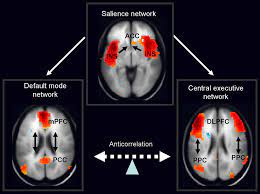Nicotine's Effects on Cognition
Nicotine, despite popular belief, is extremely beneficial for brain health and cognition. It increases attention span, memory retention, and even reduces risk of neurological disorders such as Parkinson's Disease.
Mechanism of Action
Nicotine exerts it's effects primarily through the agonism (activation) of the nicotinic acetylcholine receptors in the brain [1]. When these receptors are stimulated, they potentiate the release of acetylcholine, a neurotransmitter crucial for memory retention and cognition.
Nicotine also likely modulates GABAergic, dopaminergic, serotonergic, and noradrenergic systems [1].
Research also heavily suggest that nicotine inhibits monoamine oxidases A and B, which are responsible for the degradation of dopamine [1]. This further supports nicotine's ability to increase motivation and attention span.
Role in Cognitive Enhancement
It is well known in the scientific community that nicotine has profound effects on cognition - particularly in attention span and memory. This was first documented in the late 1970's when Dr. Warburton conducted a survey among smokers, where a majority of smokers agreed to the statement that "smoking helps me think and concentrate" [5].
Although nicotine assists in multiple "pathways" of cognition (i.e., motivation, memory, focus, etc), it seems to exceed the most in improving the capability to complete sustained attention driven tasks [6]. As the name implies, these are tasks that require the ability to sustain focus on an activity or stimulus over long periods of time.
Nicotine also "pushes" the brain towards the central executive network (CEN) and away from the default mode network (DMN).

The DMN is the neurological system that is active when an individual is not engaged in any specific cognitive task. It is also associated with rumination and "mind-wandering", and depressed individuals tend to have an overactive DMN [7].
The CEN is the neurological system that is active when an individual is engaging with a specific cognitive task. Logically, if you're trying to enhance cognition/focus/memory, a shift towards the CEN is favorable, and using nicotine can help accomplish this shift.
Through it's modulation of the cholinergic system, nicotine drastically improves memory. It does so by facilitating encoding processes in the consolidation of both declarative and nondeclarative learning [8]. In layman's terms, this means that nicotine assists in storing memories for processes like recollection (ex: memorizing words from flashcards - this is declarative learning), AND for processes like technical action execution (ex: learning how to ride a bicycle - this is nondeclarative learning).
Role in Parkinson's Disease Treatment/Prevention
Nicotine has been shown to reduce the occurrence of Parkinson's Disease. This was discovered in the 1970's when researchers noted that smokers were developing Parkinson's Disease at a lower rate than non-smokers [2].
Logically, this makes sense. Parkinson's Disease is characterized by a loss of nigrostriatal dopaminergic function (though it should be noted that the entire function as a whole of Parkinson's Disease has not been elucidated yet), and nicotine receptors are present in several subtypes on dopaminergic terminals [3]. Nicotine also nicotine enhances expression of some nicotinic receptor subtypes decreased with nigrostriatal damage [4].
There are quite a few studies indicating nicotine's potential (hypothetical application/in vitro) and actual (real, observed effects in vivo) treatment for Parkinson's Disease, but I won't go into all of those specifically. If you'd like to do a little deep dive yourself, you can check out this pooled analysis study.
How You Can Supplement with Nicotine Responsibly
Typically, recreational doses of nicotine lie anywhere between 3mg and 12mg at a time. However, for the purposes of enhancing cognition, nicotine should only be taken at a dose of 1mg-3mg at once. Any more than 3mg is likely to worsen cognition acutely. This is because nicotine has an upper limit to it's cognitive enhancing capabilities, and the dose-response curve seems to be "u-shaped" [6].

If it wasn't already obvious, you should not be smoking tobacco as a method to intake your nicotine. The safest methods seem to be patches or pouches. Vaporizers are an option, but the dosing is difficult to get consistent and the solvents may do unwanted damage long term.
My Opinions
Personally, I believe that anyone seeking to improve cognition should be supplementing with nicotine at low doses. It's safe, innocuous, and dirt cheap - I see no reason for anyone not to be utilizing nicotine as a cognition booster.
Looking to learn more about cognitive enhancement? Book a call with me here
[1] Raj Kumar Tiwari, Vikas Sharma, Ravindra Kumar Pandey, and Shiv Shankar Shukla (2020) "Nicotine Addiction: Neurobiology and Mechanism"
[2] Irving I. Kessler and Earl L. Diamond (1971). "EPIDEMIOLOGIC STUDIES OF PARKINSON'S DISEASE: I. SMOKING AND PARKINSON'S DISEASE: A SURVEY AND EXPLANATORY HYPOTHESIS"
[3] Maryka Quik, PhD, Kathryn O’Leary, PhD, and Caroline M. Tanner, MD, PhD (2008). "Nicotine and Parkinson’s disease; implications for therapy"
[4] C L Gentry and R J Lukas (2002). "Regulation of nicotinic acetylcholine receptor numbers and function by chronic nicotine exposure"
[5] K. Wesnes & D.M. Warburton (1983). "Smoking, nicotine and human performance"
[6] Gandelman, J. A., Newhouse, P., & Taylor, W. D. (2018). "Nicotine and networks: potential for enhancement of mood and cognition in late-life depression"
[7] J. Paul Hamilton, Ph.D., Madison Farmer, B.A., Phoebe Fogelman, and Ian H. Gotlib, Ph.D (2015). "Depressive Rumination, the Default-Mode Network, and the Dark Matter of Clinical Neuroscience"
[8] Anton L. Beer (2016) "Nicotine and Cognition: Effects of Nicotine on Attention and Memory Systems in Humans" Chapter 27, Neuropathology of Drug Addictions and Substance Misuse